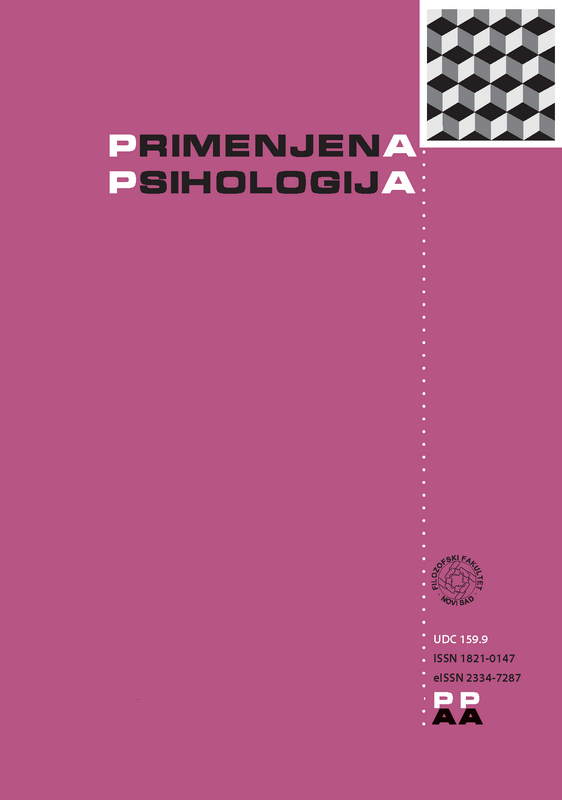Relationships between cognitive motivations and personality traits of revised reinforcement sensitivity theory
DOI:
https://doi.org/10.19090/pp.2009.3.273-286Keywords:
cognitive motivations, need for structure, need for cognition, Revised reinforcement sensitivity theoryAbstract
The aim of this study was to examine the relationships between cognitive motivations (need for cognitoin and need for structure) and personality traits in context of Revised reinforcement sensitivity theory. The sample included 287 participants (both genders, mean age 21,4). Need for structure was measured using the Personal Need for Structure Questionnaire (PNS; Neuberg & Newsom, 1993), need for cognitition was measured using the Need for Cognition Questionnaire (NFC; Cacciopo, Petty & Kao, 1984), and personality traits - using the Reinforcement Sensitivity Questionnaire (RSQ; Smederevac et al., 2008). Confirmatory factor analyses of the PNS, NFC and RSQ dimensions revealed that the best-fitting model comprised three latent dimensions. The first one contains Behavioral Activation System, Fight from Fight/Flight/Freeze System and need for cognition, second one contains Behavioral Inhibition System and need for structure, while the third one contains of fear reactions Flight and Freeze from Fight/Flight/Freeze System. Correlations between first and second latent dimensions are non-significant, while between first and third are negative and between second and third are positive. These findings are coherent with the Reinforcement sensitivity theory implications.Downloads
Published
01.10.2015
How to Cite
Dinić, B., & Smederevac, S. (2015). Relationships between cognitive motivations and personality traits of revised reinforcement sensitivity theory. Primenjena Psihologija, 2(3), 273–286. https://doi.org/10.19090/pp.2009.3.273-286
Issue
Section
Regular issues







